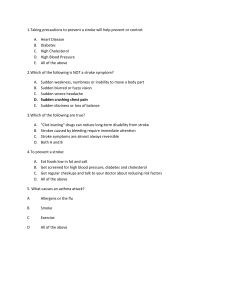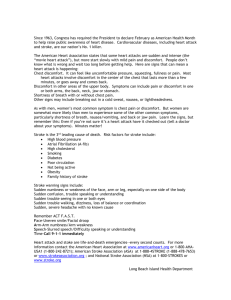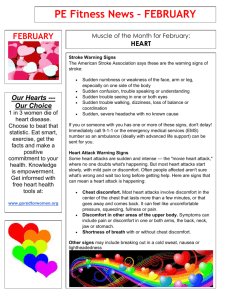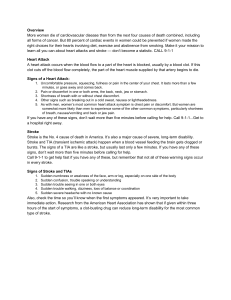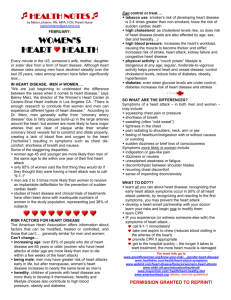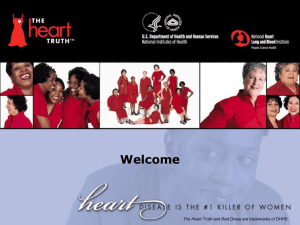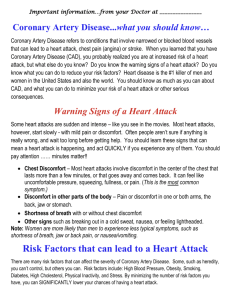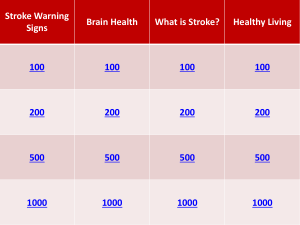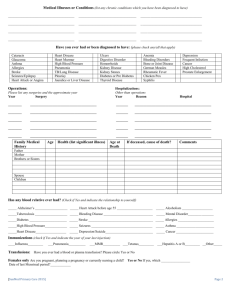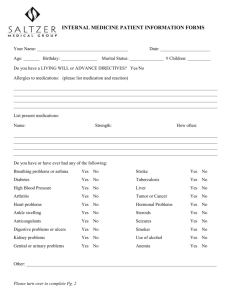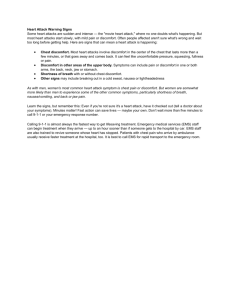Heart Signs - Experience HealthND
advertisement
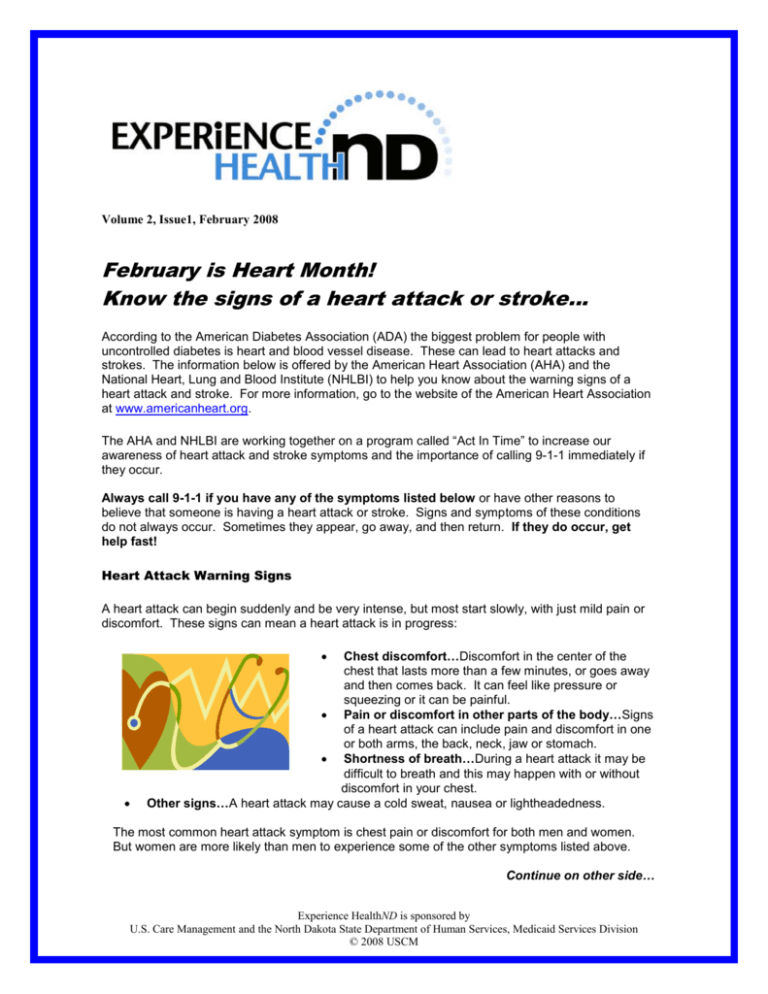
Volume 2, Issue1, February 2008 February is Heart Month! Know the signs of a heart attack or stroke… According to the American Diabetes Association (ADA) the biggest problem for people with uncontrolled diabetes is heart and blood vessel disease. These can lead to heart attacks and strokes. The information below is offered by the American Heart Association (AHA) and the National Heart, Lung and Blood Institute (NHLBI) to help you know about the warning signs of a heart attack and stroke. For more information, go to the website of the American Heart Association at www.americanheart.org. The AHA and NHLBI are working together on a program called “Act In Time” to increase our awareness of heart attack and stroke symptoms and the importance of calling 9-1-1 immediately if they occur. Always call 9-1-1 if you have any of the symptoms listed below or have other reasons to believe that someone is having a heart attack or stroke. Signs and symptoms of these conditions do not always occur. Sometimes they appear, go away, and then return. If they do occur, get help fast! Heart Attack Warning Signs A heart attack can begin suddenly and be very intense, but most start slowly, with just mild pain or discomfort. These signs can mean a heart attack is in progress: Chest discomfort…Discomfort in the center of the chest that lasts more than a few minutes, or goes away and then comes back. It can feel like pressure or squeezing or it can be painful. Pain or discomfort in other parts of the body…Signs of a heart attack can include pain and discomfort in one or both arms, the back, neck, jaw or stomach. Shortness of breath…During a heart attack it may be difficult to breath and this may happen with or without discomfort in your chest. Other signs…A heart attack may cause a cold sweat, nausea or lightheadedness. The most common heart attack symptom is chest pain or discomfort for both men and women. But women are more likely than men to experience some of the other symptoms listed above. Continue on other side… Experience HealthND is sponsored by U.S. Care Management and the North Dakota State Department of Human Services, Medicaid Services Division © 2008 USCM Stroke Warning Signs These warning signs of stroke are offered by the American Stroke Association: Sudden numbness or weakness of the face, arm, or leg, especially on one side of the body Sudden confusion, trouble speaking or understanding Sudden trouble seeing in one or both eyes Sudden trouble walking, dizziness, loss of balance or coordination Sudden, severe headache with no known cause. Calling 9-1-1 is almost always the fastest way to get lifesaving treatment. Emergency medical services staff can start treatment when they arrive. This is very important to minimizing long-term disability for heart attacks and stroke as well as saving life. How You Can Protect Your Heart 1. Don't smoke: Did you know that smoking is one of the worst things you can do to your body? Think of taking a hammer and smashing your toe, again and again and again. You may not see it, but that’s what the smoke does to the tiny cells inside your lungs. It injures them every time you light up. Give your cells a break! 2. Know your blood pressure and keep it under control: What was the final score on the Super Bowl earlier this month? If you are a football fan, I am sure you know it by heart. But do you know your blood pressure? It is a far more important number to know than the score of a game. Get your blood pressure checked and keep it under control. 3. Exercise on a regular basis and maintain a healthy weight: Now wait a minute! You mean you didn’t know that exercise is one of the most important things you can do for your health? Yes, that’s right. Not only is it good for your heart, its good for your figure, your joints, your muscles, your mood, your mind. So get on your feet and get moving! 4. Eat a lot of fruits and vegetables: Its simple. Add a fruit to each meal. How about a banana with breakfast? An apple for lunch? And some broccoli with dinner? Its easier than it seems. Just make it something you do everyday and stick with it. 5. Get tested for “sugar” (diabetes), cholesterol and keep them under control if high: Diabetes and high cholesterol are not good for the heart. If you take the actions discussed above, you can help keep diabetes and high cholesterol away. But, if you are diagnosed with them, in addition to your medicines, work on these actions to bring your sugar and cholesterol under control. Did you know that you may even be able to come off of some of the CommandButto se medicines? For further information speak to your doctor or call Experience HealthND at 1-866-435-4306. Experience HealthND is sponsored by U.S. Care Management and the North Dakota State Department of Human Services, Medicaid Services Division © 2008 USCM Experience HealthND is sponsored by U.S. Care Management and the North Dakota State Department of Human Services, Medicaid Services Division © 2008 USCM
